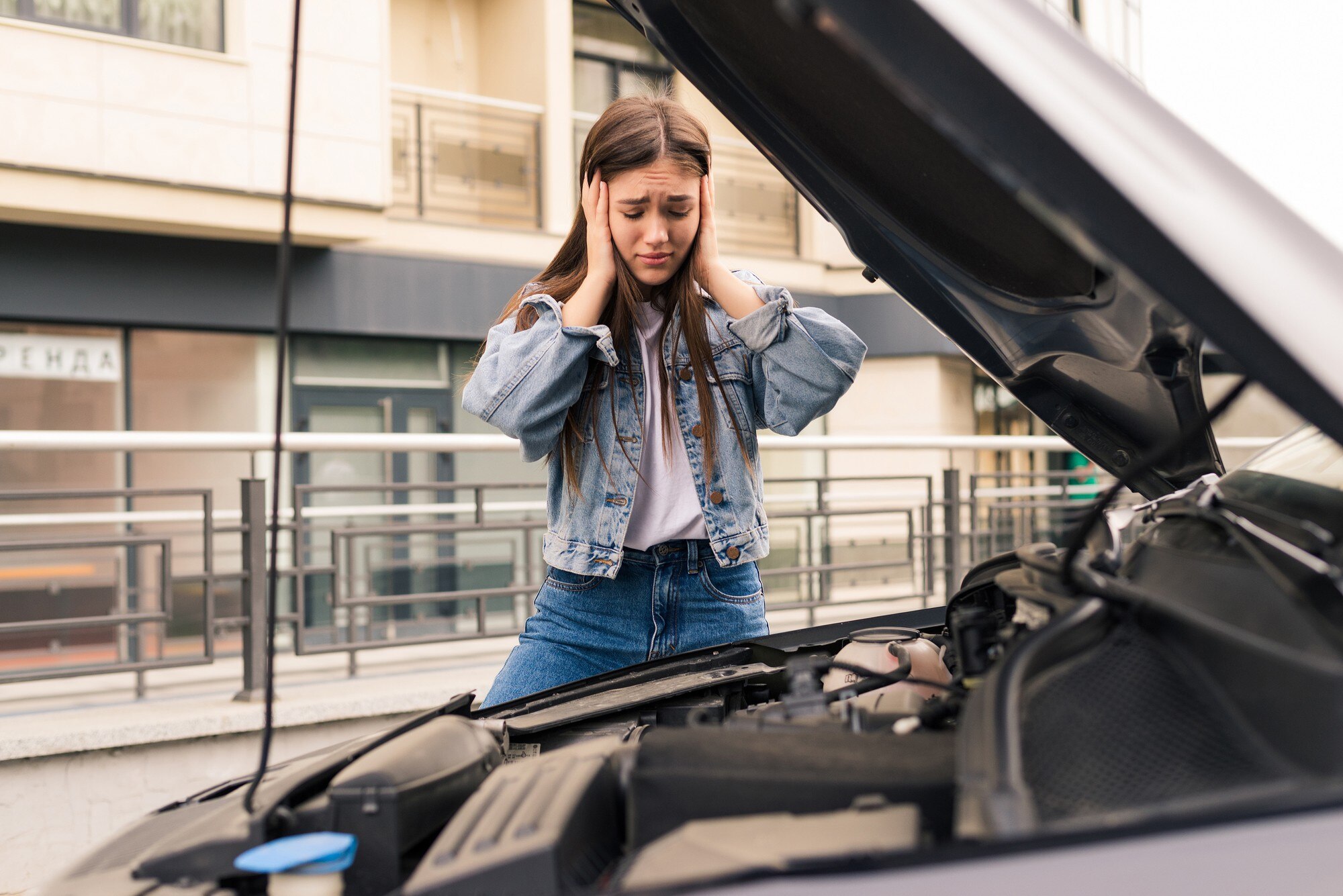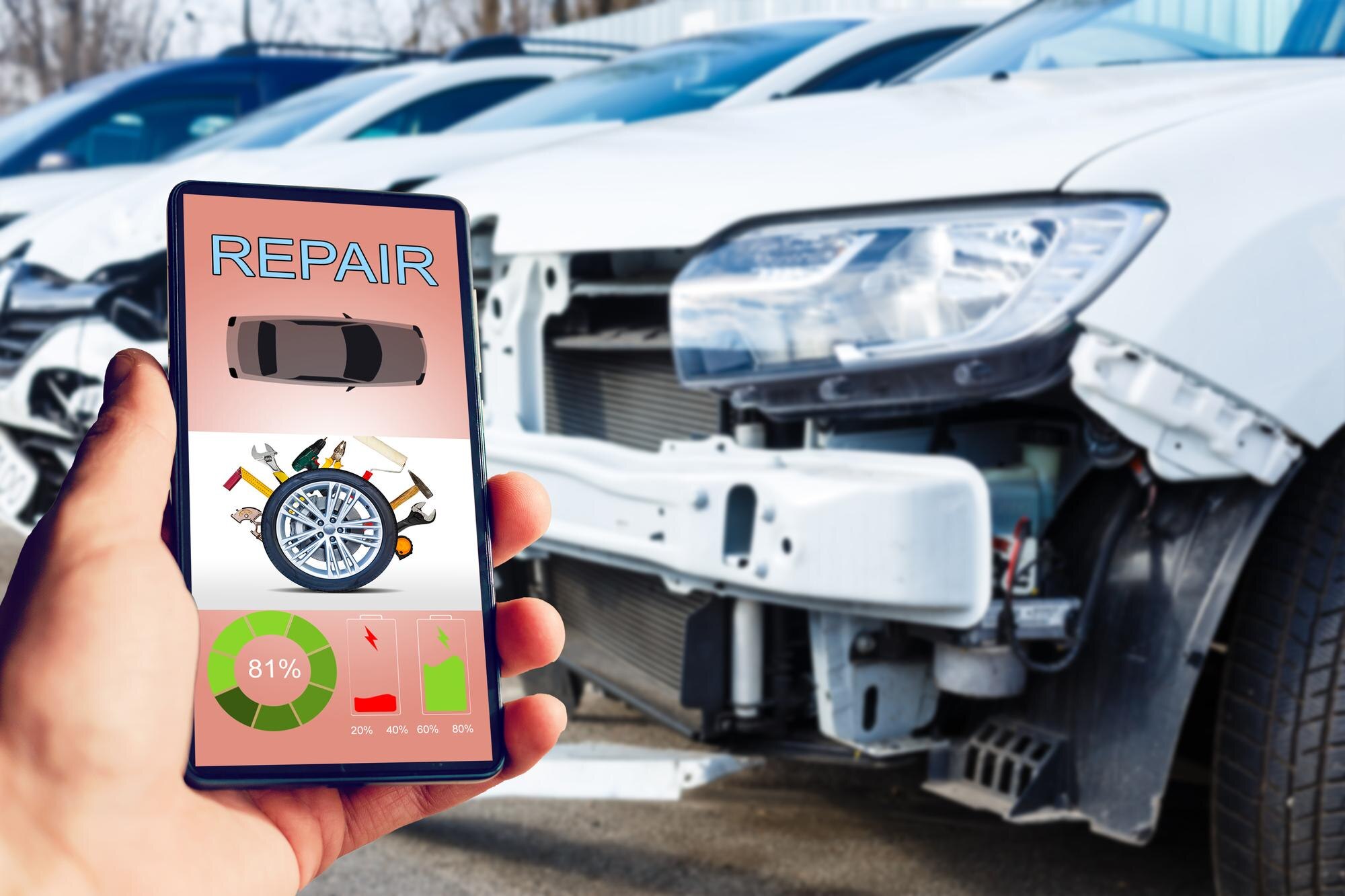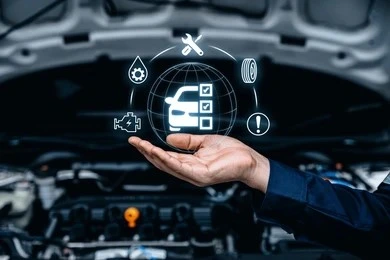Identify common car issues before they escalate into major problems with these expert tips.
Introduction
Cars are built to run smoothly and efficiently, but sometimes, strange noises can emerge that indicate something isn’t quite right. These noises can be more than just an annoyance—they often serve as signals from your vehicle that something needs attention. Understanding the types of noises your car makes and what they could mean can help you identify and resolve potential issues before they escalate.
In this blog, we’ll explore some of the most common car noises, what they signify, and how to address the underlying issues.
Squealing or Screeching Brakes
What It Is: One of the most common car noises is a high-pitched squeal or screech when you apply the brakes. This sound usually occurs when the brake pads are worn down and need to be replaced.
Possible Causes:
- Worn brake pads: Brake pads have a wear indicator built into them. When the pads become thin, the indicator makes a squealing noise to alert you that replacement is necessary.
- Brake dust buildup: Dust or debris that accumulates on the brake pads can cause a squeaking sound.
- Moisture: If it’s wet outside, water on the brake components can sometimes lead to temporary squealing.
Solution:
- Replace brake pads: If the noise persists and the pads are worn, it’s time to replace them. Most mechanics recommend checking your brake pads every 10,000 to 20,000 miles.
- Brake cleaning: A thorough cleaning of the brake components can help remove dust and debris, reducing noise.
Grinding or Rubbing Noise While Braking
What It Is: If you hear a grinding or rubbing noise when braking, this usually signals a more serious issue than squealing. It typically indicates that the brake pads are worn all the way down to the metal, causing metal-to-metal contact with the rotor.
Possible Causes:
- Severely worn brake pads: If the pads have worn out completely, the metal parts of the brake pad will rub against the brake rotor, producing a grinding sound.
- Damaged rotors: Excessive wear on the rotors due to prolonged contact with worn pads can cause them to warp, resulting in a grinding noise.
Solution:
- Replace brake pads and rotors: The pads should be replaced immediately, and depending on the damage to the rotors, they may need to be resurfaced or replaced as well.
- Regular brake inspections: Regularly inspect your brakes to ensure the pads are in good condition and the rotors are not worn down.
Clicking or Tapping Noise from the Engine
What It Is: A clicking or tapping noise coming from the engine could be a sign of several underlying issues. These sounds can range from soft taps to louder clicks, and their causes can vary in severity.
Possible Causes:
- Low oil levels: When the engine oil level is too low, the engine parts might not be lubricated properly, causing them to tap or click.
- Worn lifters or valve components: A tapping noise could also come from the internal engine components, such as lifters or valves, that are not functioning properly.
- Timing belt issues: If the timing belt is loose or damaged, it could cause a ticking sound.
Solution:
- Check oil levels and change the oil: Ensure the oil is at the correct level and change it if necessary. Low oil is a simple fix, but ignoring it can lead to major engine damage.
- Engine inspection: If the noise persists after addressing the oil levels, have a mechanic inspect the lifters, valves, and timing belt for wear or damage.
Clunking Noise When Turning
What It Is: A clunking noise when turning the steering wheel can indicate problems with the suspension or steering components. This sound is typically more pronounced during sharp turns or when driving over uneven surfaces.
Possible Causes:
- Worn-out CV joints: The constant velocity (CV) joints in front-wheel-drive cars allow power to be transmitted from the transmission to the wheels. If these joints become damaged or worn, they can produce a clunking noise when turning.
- Loose steering components: Components such as the steering rack or tie rods can wear out and cause a clunking sound when turning the wheel.
- Worn suspension components: Shock absorbers, struts, or control arm bushings can wear out and cause noise during turning or when driving over bumps.
Solution:
- Replace CV joints: If the CV joints are worn, they should be replaced immediately, as driving with damaged joints can lead to more severe damage.
- Inspect suspension and steering components: Have a mechanic inspect the steering and suspension components for wear and replace any damaged parts.
Hissing or Whistling Noise from Under the Hood
What It Is: A hissing or whistling noise that seems to come from under the hood is usually caused by air or fluid escaping from the engine or related components. This sound can be subtle at first but may become more pronounced over time.
Possible Causes:
- Vacuum leak: A hissing sound could indicate a vacuum leak in the intake manifold or a hose that is cracked or loose. This affects engine performance and fuel efficiency.
- Coolant leak: A hissing sound could also be caused by coolant leaking from the radiator or hoses, often accompanied by steam or an overheating engine.
- Worn serpentine belt: A high-pitched whistling noise could come from a worn or loose serpentine belt that drives several engine components.
Solution:
- Repair vacuum leaks: If a vacuum leak is suspected, have the intake system and hoses inspected for cracks or damage and repair them.
- Fix coolant leaks: If coolant is leaking, address the issue immediately to avoid engine overheating and potential damage.
- Replace the serpentine belt: A worn serpentine belt should be replaced to ensure proper engine function.
High-Pitched Squealing from Under the Car
What It Is: A high-pitched squeal coming from under the car, especially when accelerating, is often related to the drive belts or accessories that the belts power. This sound can be particularly noticeable when the engine is cold or after rain.
Possible Causes:
- Worn or loose drive belt: The drive belt, which powers various engine accessories like the alternator, power steering pump, and air conditioning compressor, can become loose or worn over time.
- Faulty pulleys or tensioners: If the pulleys or tensioners that keep the drive belt taut are damaged, they can cause the belt to slip, leading to a squealing noise.
Solution:
- Tighten or replace the drive belt: If the belt is loose or worn, have it tightened or replaced. Regularly inspect the belt for wear and ensure it’s functioning properly.
- Check pulleys and tensioners: Have a mechanic check the pulleys and tensioners and replace them if they are damaged or malfunctioning.
Rattling Noise from the Exhaust System
What It Is: A rattling noise from the exhaust system is often indicative of a loose or damaged component, such as a heat shield, catalytic converter, or muffler.
Possible Causes:
- Loose heat shield: The heat shield is designed to protect the car’s undercarriage from the heat generated by the exhaust system. Over time, it can loosen and rattle.
- Damaged catalytic converter: A rattling noise from the exhaust could also indicate a failing catalytic converter. This is often accompanied by poor engine performance or a check engine light.
- Loose muffler: If the muffler is loose or damaged, it can cause a rattling sound.
Solution:
- Tighten or replace the heat shield: If the heat shield is loose, have it re-secured or replaced.
- Replace the catalytic converter or muffler: If the catalytic converter or muffler is the source of the noise, these components will need to be replaced.
Conclusion
Car noises should never be ignored, as they are often the first warning signs that something may be wrong with your vehicle. Understanding the different sounds your car makes and their possible causes can help you address issues before they lead to more severe damage. Regular maintenance and prompt repairs are key to keeping your car running smoothly and ensuring your safety on the road.
Key Takeaways
- Squealing or grinding brakes, tapping engine noises, and clunking during turns are all signs of underlying issues.
- Address issues promptly to avoid more costly repairs down the line.
- Regular maintenance and inspections are essential for keeping your vehicle in top condition.
By staying attentive to the sounds your car makes, you can keep your vehicle in peak performance and avoid costly surprises.




Share this post: